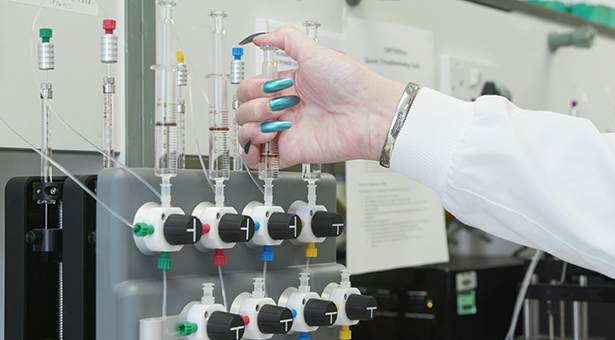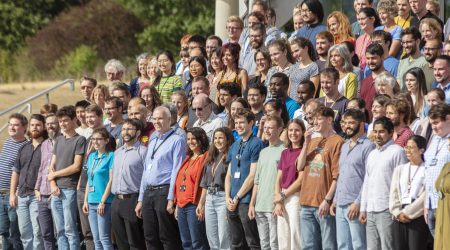New report shines light on challenges faced by technicians working in higher education

The University of Nottingham has published a report that highlights the equality, diversity and inclusion (EDI) challenges facing technicians working in higher education (HE).
The technical community is critical to the success of the UK’s HE sector, providing support which is essential for research and teaching, and many are researchers and teachers themselves.
‘Equality, Diversity and Inclusion (EDI): A Technician Lens’ report is informed by quantitative and qualitative evidence from national workshops and presentations, which identifies key EDI challenges and makes recommendations to advance equality for everyone working in the sector.
Professor Dale Sanders FRS, Director of the John Innes Centre commented, “I welcome this report. The data and the recommendations will be invaluable for Universities and Institutes who are working to inform initiatives and to improve technician career structures. We are proud to be involved with the Technician Commitment and believe that without this community our research would be compromised.”
Technician’s roles are being increasingly recognised through the Technician Commitment – a sector-wide initiative to ensure visibility, recognition, career development and sustainability of technical skills and roles within UK HE and research.
Dr Clare Stevenson, said, “The report is a product of gathering and sharing information across universities primarily, but also from research institutes like the John Innes Centre. This view to the future and the sharing of best practice is invaluable to ensure that we keep building on the pillars of visibility, recognition, career development and sustainability.”
Dr Carole Thomas, Head of Directorate at the John Innes Centre “We recognise the critical role Technicians play in ensuring the success of our research. This group of key staff are highly respected and valued, and have always been a part of our Athena SWAN activity. I am delighted to see that this informative EDI report highlights the importance of a holistic approach to EDI recognising the overlap between the Technician Commitment, the Race Charter and Athena SWAN. This holistic approach is critical to address the EDI challenges in the Technician community.”
- Recommendations in the “Equality, Diversity and Inclusion (EDI): A Technician Lens” include:
- Ensuring EDI initiatives, both sector and institutional, are inclusive of technical roles
- Better succession planning to avoid losing skills as technical staff head towards retirement
- More support for female and BAME technicians wanting to move into leadership and management roles
- The promotion of outreach activities aimed at encouraging people from a wider range of backgrounds into technical careers
- More investment in needed in apprenticeship and trainee technician programmes to ensure succession of technical talent
Kelly Vere, Director of Technical Skills and Strategy at the University of Nottingham, said: “Technicians are vital to universities and research institutes. Our report offers the first step to understanding and improving EDI in the technical community in UK higher education. By working together to increase awareness and recognition of EDI challenges, and by designing and implementing interventions to address them, we can advance equality, diversity and inclusion for all.”
Further Information
The report – ‘Equality, Diversity and Inclusion (EDI): A Technician Lens’ – is launched today (14 November) at the STEMM-CHANGE annual conference at the Royal Society of Chemistry. STEMM-CHANGE is an EPSRC-funded Inclusion Matters project aiming to drive a positive change in culture and practices in EDI across Science, Technology, Engineering, Mathematics and Medicine (STEMM).
STEMM-CHANGE has been working with Technician Commitment signatories, the University of Liverpool and the John Innes Centre, and the Science Council, to highlight and address EDI challenges facing the technical community.

